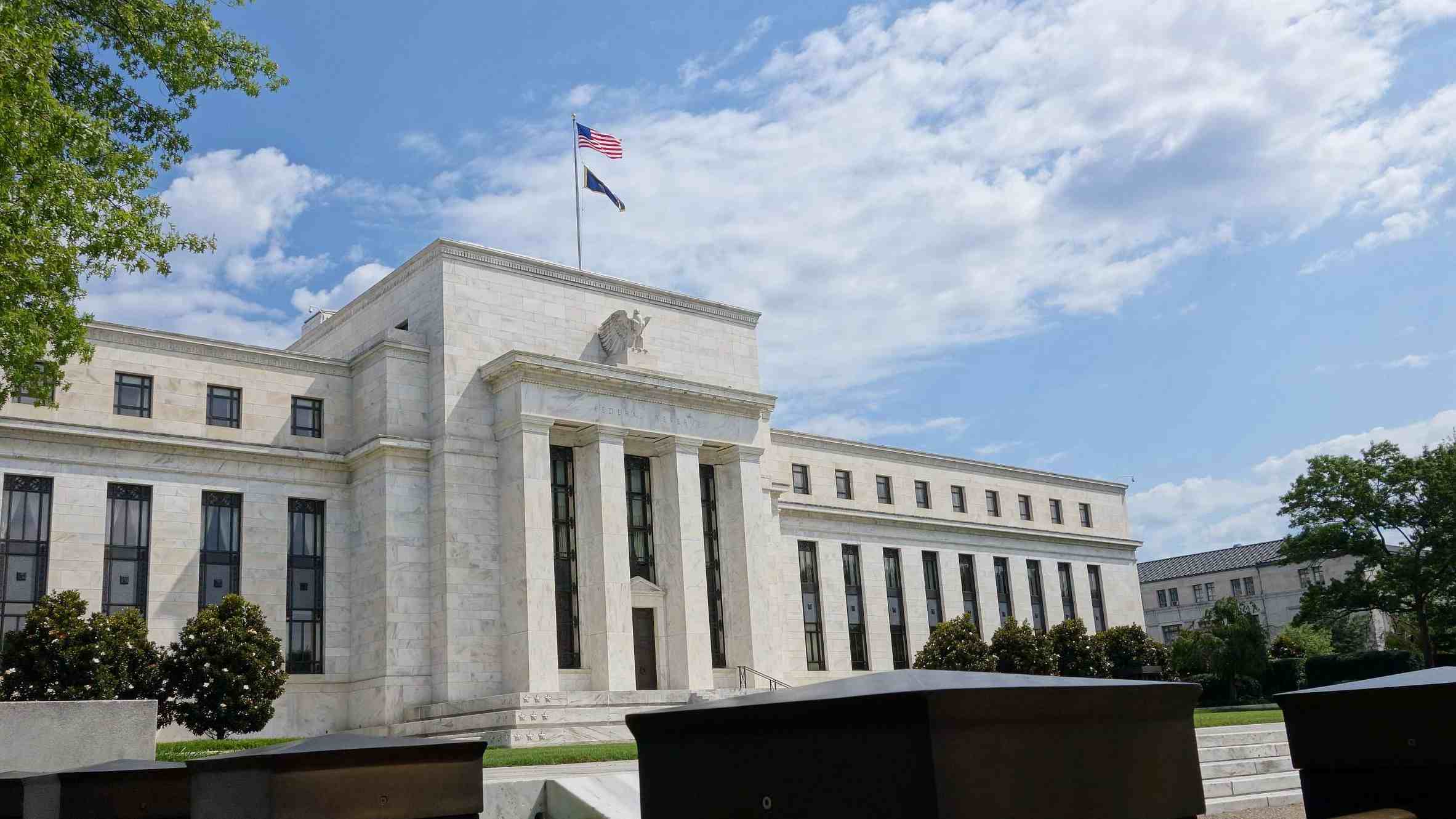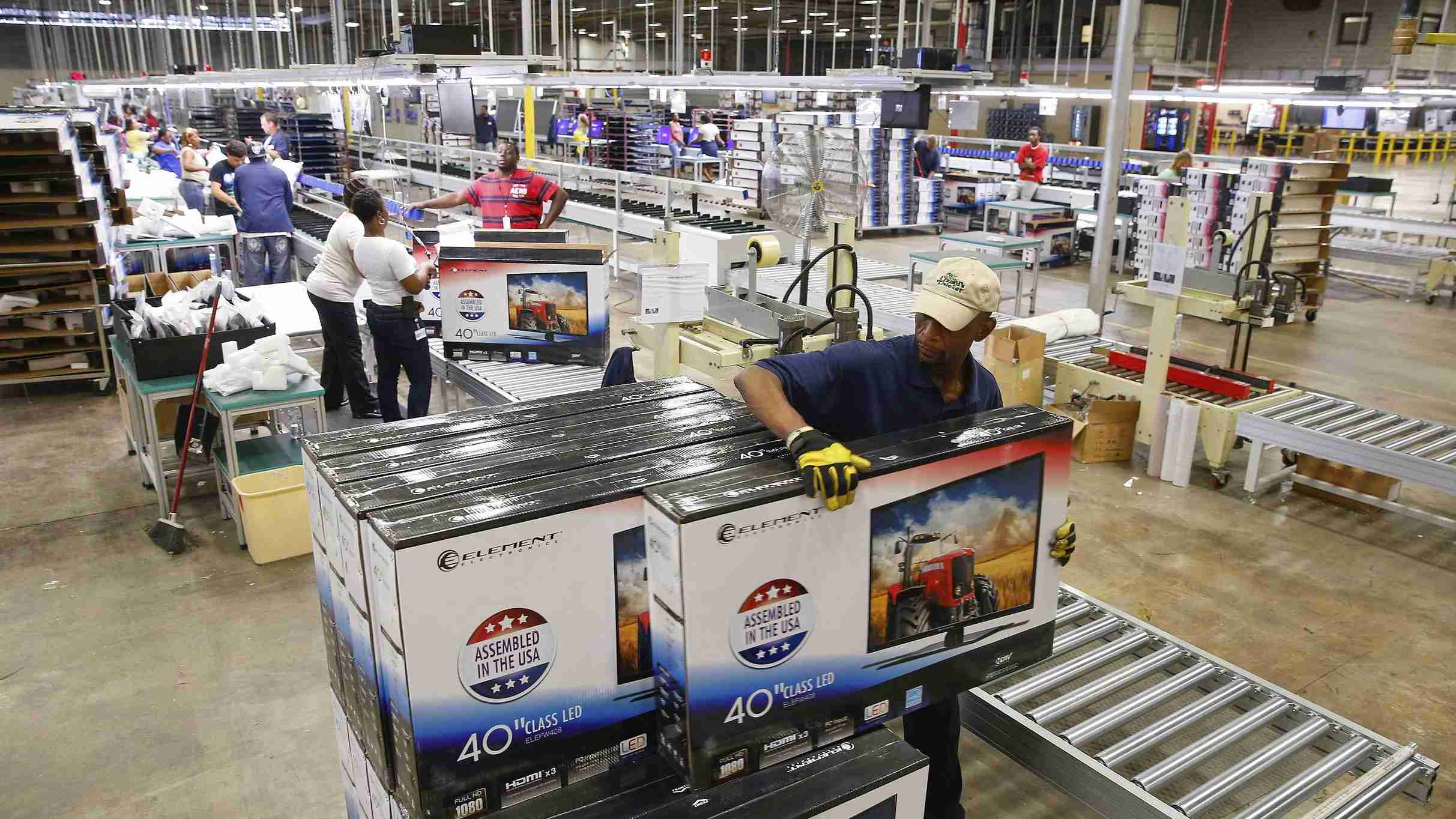
Business
18:18, 25-Oct-2018
US manufacturers say tariffs pushing prices higher: Fed
Updated
17:39, 28-Oct-2018
CGTN

US factories have raised their prices because of tariffs, although inflation has appeared modest or moderate in most parts of the country, the Federal Reserve said on Wednesday in its latest report on the economy.
The US central bank also said in its latest "Beige Book" report that the economy appeared to be growing modestly to moderately and that businesses across a number of industries had reported labor shortages.
The report, a snapshot of the economy gleaned from discussions with business contacts in the Fed's 12 districts between September and mid-October, detailed business worries about the Trump administration's trade friction with China and simmering tensions with other major trading partners.
"Manufacturers reported raising prices of finished goods out of necessity," the Fed said, adding that the reason given for the price hikes was higher costs for raw materials such as steel, "which they attributed to tariffs."
Still, the Fed signaled that inflation pressures did not appear very high. "Prices continued to rise, growing at a modest-to-moderate pace in all districts."
Tariff concerns ratchet up
The October Beige Book, at 32 pages, includes 51 instances of the word "tariff" or its derivations. Nearly all of the Fed's regional districts referred to tariffs in their individual reports, with St. Louis as the sole exception.
Mentions of tariffs first surged in the April Beige Book, which featured 36 such references as US companies grappled with the effects of 25 percent duties on imported steel and aluminum announced in March. The May Beige Book included 22 references to tariffs. The July edition had 31 such instances, and the September edition had 42.
The Fed has raised interest rates three times this year in a bid to keep prices from rising too quickly. It is widely expected to lift them again in December.

US manufacturers stacks boxes of television sets. / VCG Photo
US manufacturers stacks boxes of television sets. / VCG Photo
US President Donald Trump has slapped tariffs on imports from a range of trading partners, including China, the European Union, Canada and Mexico, prompting retaliation against US exports.
Among manufacturers in the Dallas Fed's district, which is largely centered on Texas, the Fed said: "Roughly 60 percent of contacts said the tariffs announced and/or implemented this year have resulted in increased input costs."
In the Chicago Fed's Midwestern region, "retail contacts across numerous sectors indicated that they expected consumers to see the impact of US tariffs on imports by early 2019," according to the Fed's report.
Despite the trade tensions, the Fed said a tight job market has made it difficult for employers to find qualified workers, including "highly skilled engineers, finance and sales professionals, construction and manufacturing workers, IT professionals and truck drivers."
Source(s): Reuters

SITEMAP
Copyright © 2018 CGTN. Beijing ICP prepared NO.16065310-3
Copyright © 2018 CGTN. Beijing ICP prepared NO.16065310-3